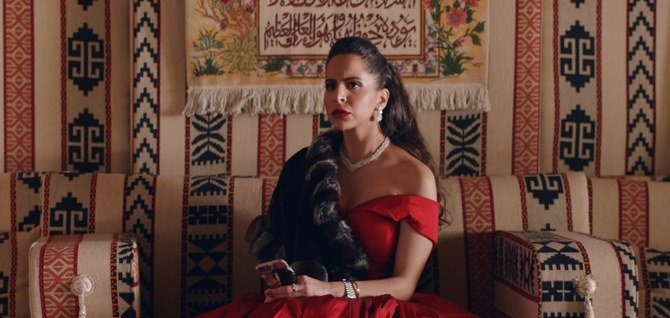Raed Alsemari, a budding filmmaker hailing from Riyadh, Saudi Arabia, has embarked on a promising career that is already etching her name into the annals of Saudi Arabian cinema history. In January 2019, her satirical short film titled “Dunya’s Day” achieved a significant milestone by becoming the first locally produced film to grace the screens of a Saudi Arabian movie theater.Reflecting on this remarkable achievement, Alsemari shared his astonishment, stating, “When we shot the film, the ban on cinemas hadn’t even been lifted, and I never imagined that there would be cinemas in Saudi, let alone (that it would screen) in front of an audience in my hometown.” She continued, “I’m still taking it in months later. We only found out the day after that it was the first, which was surreal.”While the world paid attention to the reopening of Saudi cinemas in 2018 with the screening of “Black Panther” after a three-decade hiatus, many argue that Alsemari’s accomplishment was an even more significant landmark. This is particularly true as Saudi Arabia strives to cultivate a thriving cinema industry that nurtures local talent.Raed Alsemari, currently pursuing his Master’s degree at New York University under the guidance of renowned filmmaker Spike Lee, always harbored a passion for storytelling. However, during his upbringing in Riyadh, the prospect of a career in filmmaking seemed distant. He noted, “Growing up in Saudi, most of the DVDs we got were Hollywood films and European cinema. I hadn’t really seen anything made by people from this part of the world until college. I studied literature, and, ironically, it took me going to Massachusetts to discover more film and literature from the Arab world.”As Alsemari immersed himself in the world of film, he became increasingly aware of the limited and often stereotypical portrayals of Arab and Muslim women in international media and even in the work of Arab filmmakers.
He noted the prevalent narratives of victimhood or sainthood and decided to challenge these two-dimensional depictions. He wanted to create a character who was flawed yet fiercely independent.Inspired by films like “Mean Girls” and “Heathers,” which featured irreverent tones and predominantly female casts, Alsemari embarked on the journey to create “Dunya’s Day.” The film, which continues to enjoy success on the global film festival circuit, revolves around a young woman on her graduation day in Riyadh, who is determined to attain the elite social status she believes she deserves.Alsemari and his team had the privilege of access to a grand and exclusive location in Riyadh, adding to the authenticity of the story. He explained, “When you have that character and location, the world of graduation parties in Riyadh felt like a really natural subculture to explore — a world where graduation parties are at the level of the Met Gala, where veganism is trending, and I felt value in showing that world.”What sets “Dunya’s Day” apart is its portrayal of a nuanced, complex female character who defies stereotypes.
Alsemari stated, “There’s value in seeing nuance in that, as well, as we don’t typically see narratives that allow women of color or Arab women specifically to be unlikeable and still be the hero of the story, and still be worthy of the audience’s empathy.”Despite his familiarity with Riyadh and the presence of friends and family who resembled the character Dunya, Alsemari realized that he needed to immerse himself further in the world of graduation parties. He listened to the experiences and insights of Saudi women, including the film’s producers, who offered invaluable perspectives.For casting, Alsemari and his team held open auditions using WhatsApp and social media across Riyadh. However, they faced a challenge as some young women were concerned about the potential social repercussions of appearing on screen. This hesitation limited their pool of talent to around a dozen.
To find the perfect actress for the role of Dunya, Alsemari took a unique approach: he cast his casting director, Sara Balghonaim, in the lead role.Sara Balghonaim initially hesitated but eventually agreed to take on the role. Her performance turned out to be pivotal in making the film a success. After completing filming and returning to New York, Alsemari had the honor of showing his unfinished work to his professor, the legendary filmmaker Spike Lee. Lee’s positive response and encouragement provided further validation of Alsemari’s talent.”Dunya’s Day” is just the beginning of Raed Alsemari’s cinematic journey. He is currently working on a feature-length film centered around Dunya’s wedding day. Alsemari envisions this feature film as an opportunity to delve deeper into the character, the world, and the tone that made “Dunya’s Day” a standout success.
He aims to explore the absurdities of youth, privilege, and Saudi society through the lens of a wedding celebration in Riyadh.In conclusion, Raed Alsemari’s emergence as a filmmaker is marked by a commitment to challenging stereotypes and portraying multifaceted Arab women on screen. His groundbreaking work with “Dunya’s Day” has already made history in Saudi cinema, and the promise of his future projects shines brightly on the horizon. As he continues to craft narratives that break boundaries and resonate with audiences worldwide, Raed Alsemari stands as a shooting star in the world of Saudi Arabian filmmaking.












